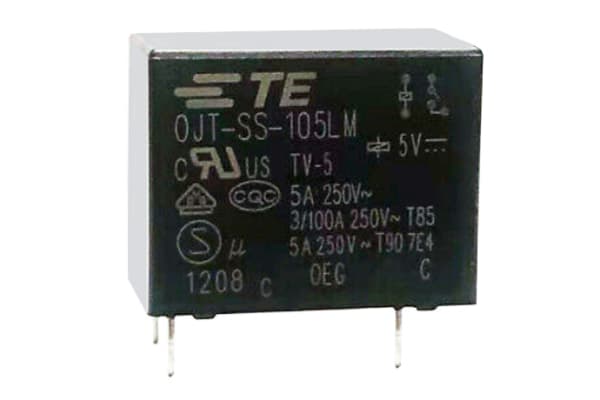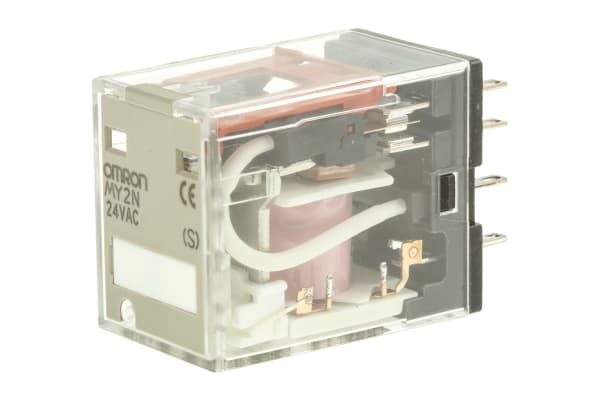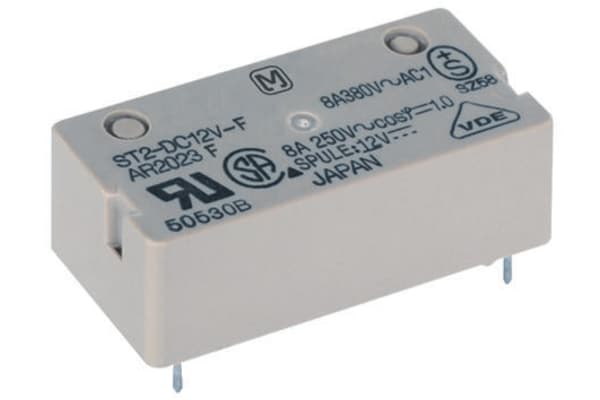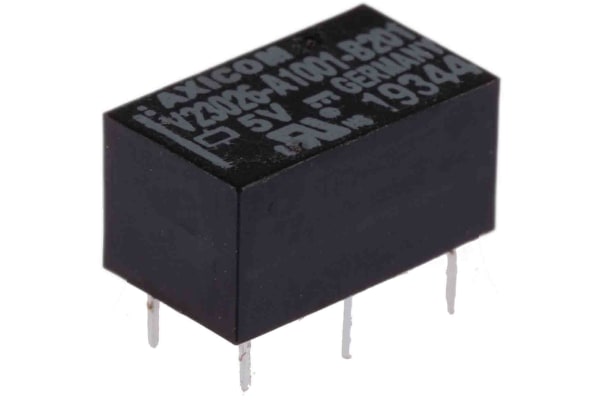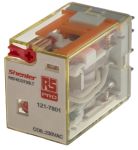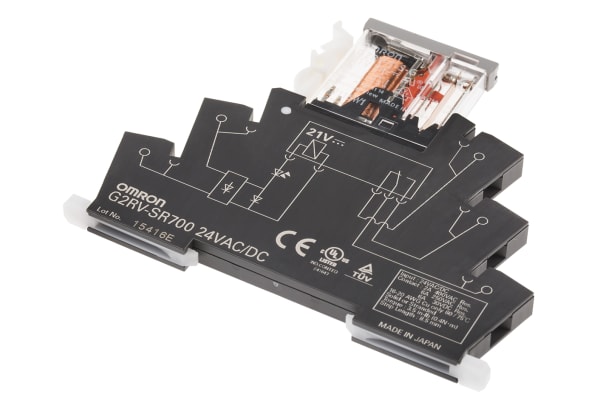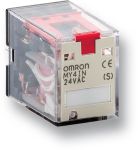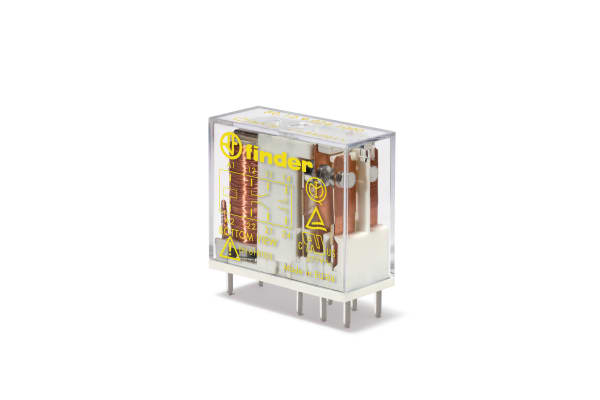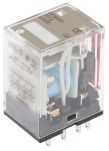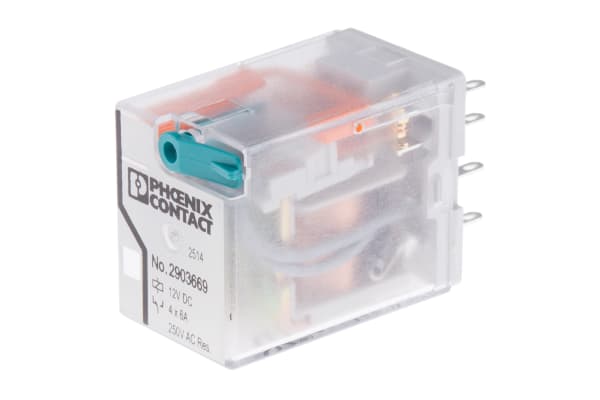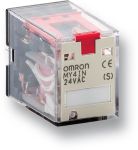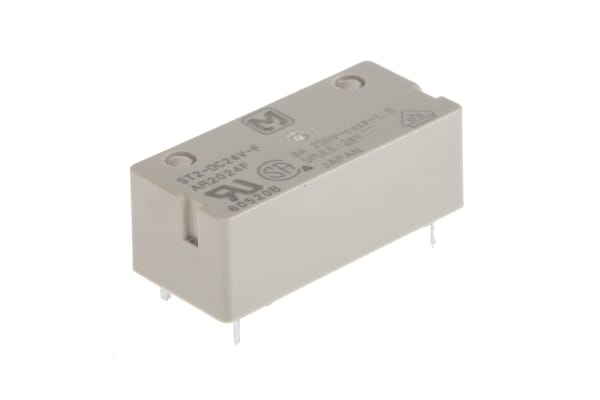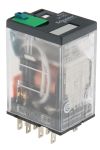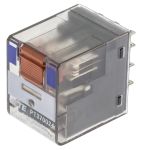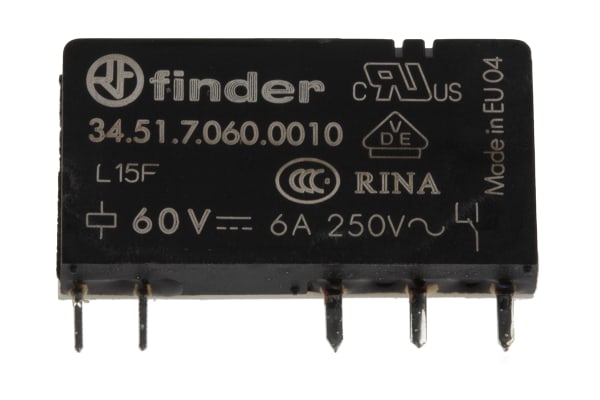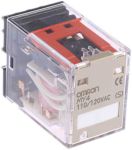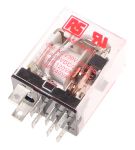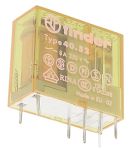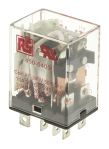Non-Latching Relays
Relays are electrical switches that are operated by electrical impulses with the primary function to open and close a circuit, they can also be referred to as industrial switches. There are 2 main types available, latching and non–latching relays.How do non-latching relays work?Non-latching relays are in a normally closed (NC) position and will stay in this state without power. When power passes through the circuit, the relay switched to a normally open (NO) position by using an internal coil to generate a magnetic force, holding this NO position. Once the current is turned off, it returns to the NC position. This makes non-latching relays well suited to push-button applications like keyboards and micro-controller input buttons.What are non-latching relays used for?Non-latching relays are highly durable and versatile components, making their performance long lasting and suitable for use in a wide range of applications, such as:Automotive enginesHousehold appliancesIndustrial machineryMedical equipmentTelecommunications equipmentWhat is the difference between latching and non-latching relays?Both types of relays in similar in design and function, however, a significant difference between them is that a latching relay will remain in the last position it when it was last powered, whereas a non-latching goes back to its normal position. This makes each more type of relay suitable for different applications. Considerations when selecting a relayWhen choosing a relay, it is important to consider a number of specifications to ensure it is fit for purpose, some factors include:Coil voltage – the required voltage to actuate the switching mechanism. If a voltage is too high this could damage the components, if it is too low then it will not actuate. Contact configuration – This is the state the contacts are in without power. For example SPST, single pole single throw.Contact material – the relay contacts are available in many materials that have certain properties. Common materials are gold, silver, tin oxide and nickel Coil power – the amount of power (watts) the coil operates at. This must match the power in the circuit for correct function. Coil resistance – the amount of resistance (ohms) in the circuit that the coil creates.
-
TE Connectivity, 5V dc Coil Non-Latching Relay SPNO, 5A Switching Current PCB Mount Single Pole, OJT-SS-105LM,000
IDR128,280.47Pack (1 Pack of 5) -
Omron, 24V ac Coil Non-Latching Relay DPDT, 10A Switching Current Plug In, 2 Pole, MY2N24ACS
IDR151,670.94 -
Omron, 24V dc Coil Non-Latching Relay DPDT, 5A Switching Current PCB Mount, 2 Pole, G6B-2114P-US DC24
IDR109,714.94 -
Panasonic, 5V dc Coil Non-Latching Relay SPNO, 8A Switching Current PCB Mount Single Pole, ST1-DC5V-F
IDR140,028.15 -
TE Connectivity, 5V dc Coil Non-Latching Relay SPDT, 1A Switching Current PCB Mount Single Pole, V23026A1001B201
IDR153,978.52 -
RS PRO, 240V ac Coil Non-Latching Relay 4PDT, 6A Switching Current Plug In, 4 Pole
IDR170,026.69 -
Finder, 24V dc Coil Non-Latching Relay DPDT, 8A Switching Current PCB Mount, 2 Pole, 40.52.9.024.0000
IDR156,076.32 -
Omron, 24V ac/dc Coil Non-Latching Relay SPDT, 6A Switching Current DIN Rail Single Pole, G2RV-SR700 AC/DC24
IDR227,191.74 -
Omron, 24V dc Coil Non-Latching Relay DPDT, 5A Switching Current Plug In, 2 Pole, MY2IN-GS 24VDC
IDR75,835.47 -
Siemens, 24V dc Coil Non-Latching Relay DPDT, 8A Switching Current Plug In, 2 Pole, LZX:PT270024
IDR186,704.20 -
TE Connectivity, 230V ac Coil Non-Latching Relay 4PDT, 6A Switching Current PCB Mount, 4 Pole, PT570730 9-1419111-1
IDR171,075.59 -
Finder 24V dc Safety Relay - Dual Channel With 2 Safety Contacts , 0 Auxiliary Contact
IDR138,035.24 -
Omron, 48V dc Coil Non-Latching Relay 4PDT, 5A Switching Current Plug In, 4 Pole, MY4 DC48(S)
IDR179,257.01 -
Phoenix Contact, 12V dc Coil Non-Latching Relay 4PDT, 50mA Switching Current PCB Mount, 4 Pole, 2903669
IDR153,244.29 -
Schneider Electric, 24V ac Coil Non-Latching Relay 4PDT, 8A Switching Current Plug In, 4 Pole, RXM4AB1B7
IDR181,459.70 -
Omron, 220/240V ac Coil Non-Latching Relay DPDT, 5A Switching Current Plug In, 2 Pole, MY2N-GS 220/240VAC
IDR162,789.28 -
Panasonic, 24V dc Coil Non-Latching Relay DPNO, 8A Switching Current PCB Mount, 2 Pole, ST2-DC24V-F
IDR146,321.55 -
Schneider Electric, 24V dc Coil Non-Latching Relay 4PDT, 8A Switching Current Plug In, 4 Pole, RXM4AB1BD
IDR165,096.86 -
TE Connectivity, 24V dc Coil Non-Latching Relay 3PDT, 10A Switching Current PCB Mount, 3 Pole, PT370024 6-1419111-1
IDR147,685.12 -
Finder, 60V dc Coil Non-Latching Relay SPDT, 6A Switching Current PCB Mount Single Pole, 34.51.7.060.0010
IDR149,048.69 -
4PDT PLUG-IN RELAY,5A 110/120VAC COIL
IDR172,229.38 -
RS PRO, 230V ac Coil Non-Latching Relay DPDT, 10A Switching Current Plug In, 2 Pole
IDR147,370.45 -
Finder, 110V ac Coil Non-Latching Relay DPDT, 8A Switching Current PCB Mount, 2 Pole, 40.52.8.110.0000
IDR162,159.94 -
RS PRO, 240V ac Coil Non-Latching Relay DPDT, 10A Switching Current Plug In, 2 Pole
IDR154,922.53



